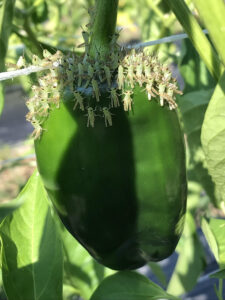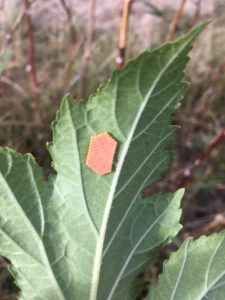 “Organic production is not simply the avoidance of conventional chemical inputs, nor is it the substitution of natural inputs for synthetic ones. Organic farmers apply techniques first used thousands of years ago, such as crop rotations and the use of composted animal manures and green manure crops, in ways that are economically sustainable in today’s world. In organic production, overall system health is emphasized, and the interaction of management practices is the primary concern. Organic producers implement a wide range of strategies to develop and maintain biological diversity and replenish soil fertility” (USDA, 2007).
“Organic production is not simply the avoidance of conventional chemical inputs, nor is it the substitution of natural inputs for synthetic ones. Organic farmers apply techniques first used thousands of years ago, such as crop rotations and the use of composted animal manures and green manure crops, in ways that are economically sustainable in today’s world. In organic production, overall system health is emphasized, and the interaction of management practices is the primary concern. Organic producers implement a wide range of strategies to develop and maintain biological diversity and replenish soil fertility” (USDA, 2007).
Soil – We care for our soil by using cover crops, compost and crop rotation. Soil is a living eco-system. Certain cover crops fix nutrients in the soil. Healthy soil is full of microorganisms such as nematodes, fungi, bacteria and earth worms and each plays its indispensable role. When compost is incorporated into the soil, microorganisms and nutrients are introduced to encourage healthy plant development and growth. Crop rotation not only reduces disease it also can replace certain nutrients back to the soil.
Pest management – Not all bugs are “bad bugs” some are beneficial to our garden such as lady bugs, they prey on “ bad bugs” and our honeybees are our pollinators. For the “bad bugs” we use crop rotation which promotes healthy plants allowing them to handle the pressure of some “bad bugs”.
bad bugs” and our honeybees are our pollinators. For the “bad bugs” we use crop rotation which promotes healthy plants allowing them to handle the pressure of some “bad bugs”.
Seed/Seedlings—Hickory Hill Farm only uses certified organic, non-GMO, and non-treated seeds and seedlings. What is a GMO? “Genetically modified organisms (GMOs) are living organisms whose genetic material has been artificially manipulated in a laboratory through genetic engineering. This creates combinations of plant, animal, bacteria, and virus genes that do not occur in nature or through traditional crossbreeding methods. Most GMOs have been engineered to withstand the direct application of herbicide and/or to produce an insecticide. However, new technologies are now being used to artificially develop other traits in plants, such as a resistance to browning in apples, and to create new organisms using synthetic biology. Despite biotech industry promises, there is no evidence that any of the GMOs currently on the market offer increased yield, drought tolerance, enhanced nutrition, or any other consumer benefit” (Non-GMO Project 2016).
